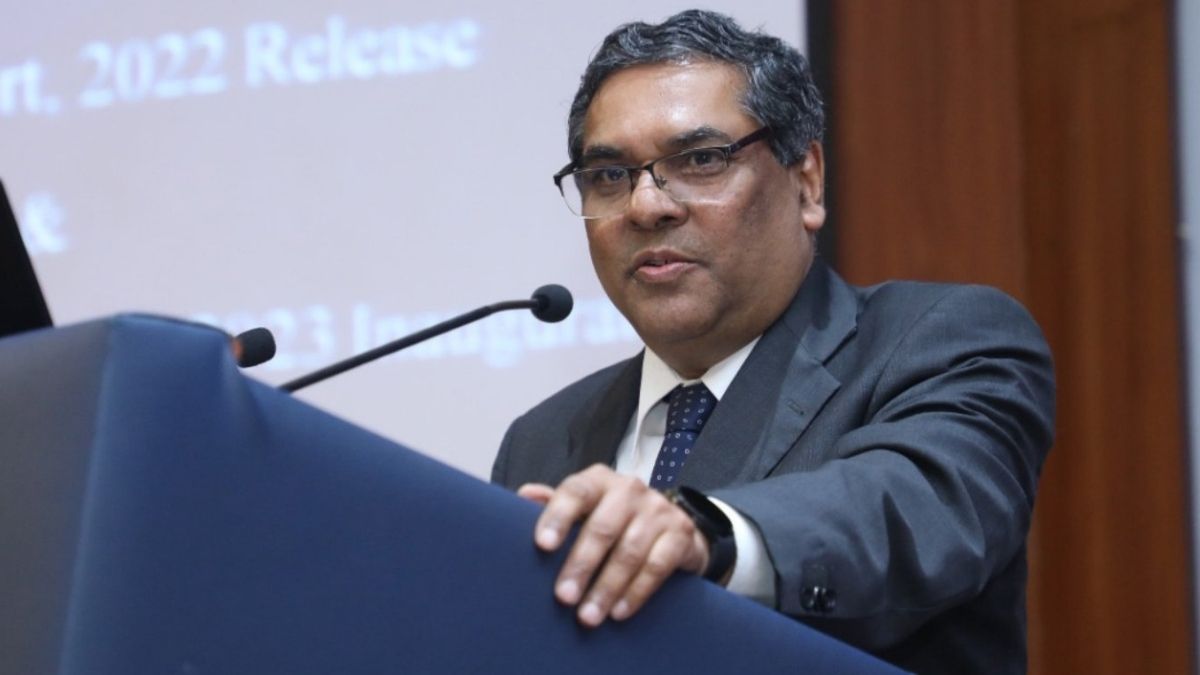The Indian government’s announcement of Justice Sanjiv Khanna as the next Chief Justice of India (CJI), effective November 11, 2024, marks a significant event in the nation’s judicial history. This appointment, made by the President following consultation with the current CJI, Justice D Y Chandrachud, underscores the established process outlined in Article 124 of the Indian Constitution. Justice Khanna’s ascension to the highest judicial office signifies a transition of leadership within the Supreme Court of India, setting the stage for his tenure to shape the future direction of the country’s legal landscape. His appointment is not just a routine succession; it represents the culmination of a distinguished legal career and the anticipation of his unique approach to judicial leadership. The appointment has been met with both anticipation and analysis of his previous judgments and his anticipated role.
Justice Sanjiv Khanna: A Profile of the Next CJI
Justice Sanjiv Khanna, born on May 14, 1960, brings a rich legal pedigree and a substantial record of service to his new role. His family background is deeply rooted in the Indian judiciary; his father, Dev Raj Khanna, also served as a judge on the Delhi High Court. This familial connection reflects a deep commitment to the legal profession spanning generations. His education at prestigious institutions such as Modern School, St. Stephen’s College, and the Campus Law Centre, University of Delhi, laid a strong foundation for his future career. This background, combining a strong educational foundation with familial influence within the legal system, indicates a well-defined path to a lifetime of legal contribution.
Early Career and Judicial Journey
Khanna’s legal career began after his enrollment with the Bar Council of Delhi in 1983. He ascended through the ranks of the Indian judiciary. He was appointed as an additional judge of the Delhi High Court in 2005, becoming a permanent judge the following year. His elevation to the Supreme Court of India in 2019 further highlighted his significant legal acumen. His rise is indicative of meritocratic progression within the legal system, and underscores the professional growth experienced during his career within the high court system.
Key Legal Contributions and Significant Judgements
Justice Khanna’s tenure has already left a mark on Indian jurisprudence. He’s been involved in several landmark cases, delivering notable opinions shaping legal interpretations and judicial discourse. He has consistently offered informed analysis across a range of legal subjects demonstrating commitment and judicial perspective.
Notable Judgments
His judgments highlight diverse judicial decisions including the security of electronic voting machines, declaring a critical part of India’s electoral process and methodology safe for use. Furthermore, his active participation on the bench played a role in cases concerning the constitutionality of the electoral bond scheme, a decision which highlighted issues around campaign finance transparency. One of his most notable decisions involved upholding the central government’s 2019 decision to abrogate Article 370, a constitutional provision granting special status to Jammu and Kashmir.
NALSA Leadership and Notable Decisions
As the executive chairman of the National Legal Services Authority (NALSA), Justice Khanna oversaw a crucial initiative for expanding access to justice across the nation. Notably, under his stewardship NALSA granted interim bail to Delhi’s Chief Minister Arvind Kejriwal during a critical election campaign, allowing the Chief Minister’s involvement in the process to proceed unhindered. This decision balanced the interests of the political and judicial processes, with an appreciation of the complexities of high-profile cases.
Legacy and Expectations
Justice Sanjiv Khanna’s appointment to the position of CJI follows a rich heritage that includes both his own accomplishments and his familial association with several respected figures within India’s legal system. Notably, he is the nephew of the late Justice Hans Raj Khanna, renowned for his dissenting judgment in the ADM Jabalpur case and for his contributions to India’s legal precedent and jurisprudence. Justice Khanna’s previous judgments provide some insight into his perspectives and potential judicial direction during his tenure as the CJI.
Challenges and Opportunities
Justice Khanna will inherit a challenging mandate as CJI, leading the Indian judicial system which often operates with massive caseloads and diverse complexities, alongside ongoing debates surrounding judicial reforms and transparency. While his appointment is largely supported within India’s political scene, there remains debate and differing perspectives on his previous cases.
The Future Under Chief Justice Khanna
The appointment of Justice Sanjiv Khanna as the next Chief Justice of India carries significant implications for the future direction of the Indian judiciary. His leadership will be marked by a mixture of judicial experience, demonstrated through his established record, and family association with renowned legal scholars and officials. His focus on delivering impartial justice will play a crucial role in his forthcoming tenure as Chief Justice. The Supreme Court under his direction is expected to take a pivotal role in shaping the future political landscape of India while simultaneously contributing to jurisprudence across the nation.
Take Away Points:
- Justice Sanjiv Khanna’s appointment as CJI signifies a generational shift in Indian judicial leadership.
- His legal background, education, and prior decisions offer insight into his judicial philosophy.
- His tenure as CJI will face challenges regarding judicial reforms, caseloads, and upholding the rule of law.
- The future direction of the Indian Supreme Court under Justice Khanna’s leadership is eagerly awaited and remains to be observed and analyzed.




